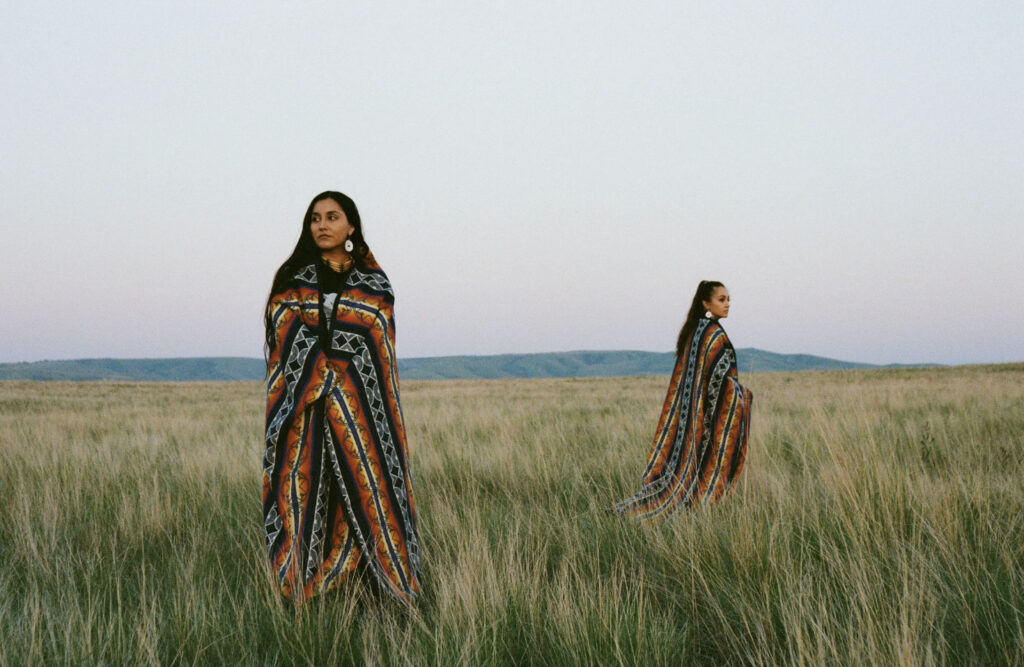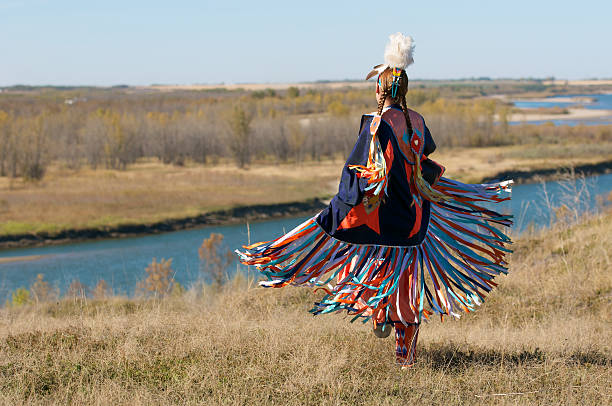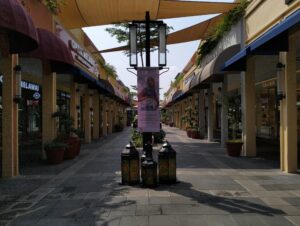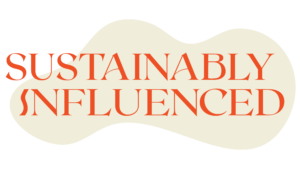How Can We Authentically Integrate Indigenous Communities In Fashion?
Bianca Foley
The fashion, apparel, and textile industries are major contributors to climate change, environmental degradation, and biodiversity loss. Despite growing efforts to adopt sustainable practices, collaboration with Indigenous Peoples and local communities remains minimal. Indigenous knowledge and practices are crucial for developing truly sustainable solutions, yet these groups are often excluded from decision-making processes. According to a report by Conservation International, only 5% of the 252 fashion and textile companies that reported on biodiversity consult Indigenous Peoples for their sustainability strategies. To address this issue, it is essential to establish industry best practices that integrate Indigenous perspectives, protect their rights, and ensure equitable partnerships.

Indigenous Representation in the Fashion Industry
Textile production has a profound impact on the natural environment. They significantly contribute to climate change and biodiversity loss through resource-intensive production processes and waste. Legislative measures, such as the German Supply Chain Act and various EU directives, are increasing accountability within the industry. However, without genuine collaboration with Indigenous communities, these efforts may fall short of achieving their sustainability goals.
The report reveals a glaring underrepresentation of Indigenous Peoples in the fashion industry’s sustainability strategies. Indigenous stewardship is critical, as it covers 20% of the Earth’s land and harbors 80% of its biodiversity. Despite this, only a small fraction of companies consult Indigenous communities, missing out on valuable knowledge and practices that contribute to healthier ecosystems and increased biodiversity.
The Importance of Indigenous Knowledge
Indigenous knowledge is integral to sustainable fashion and textile production. Indigenous methods often emphasize sustainable resource use, biodiversity conservation, and minimal environmental impact. Incorporating these practices can lead to innovative solutions that align with global sustainability targets.
Challenges and ExclusionsIndigenous communities face significant challenges, including exclusion from conservation strategies and industry forums. Historical appropriation and misuse of Indigenous designs persist, further marginalising these communities. To foster genuine collaboration, the industry must move beyond tokenistic inclusion and toward meaningful engagement.
But What Are The Principles for Authentic Partnerships?
To authentically integrate Indigenous communities into the fashion industry, several principles should be adopted. Firstly, it is crucial to identify and understand the roles and impacts of Indigenous communities in projects. This involves recognising their contributions and ensuring their knowledge and practices are valued and integrated into sustainability strategies. Understanding the unique contexts and environmental relationships of Indigenous communities is the foundation for meaningful collaboration.
Adopting a partnership mindset is essential. Indigenous Peoples should be treated as leaders and key collaborators in sustainability initiatives, with shared power and decision-making responsibilities. This approach moves away from tokenistic inclusion towards genuine, respectful partnerships where Indigenous voices and perspectives shape the direction and implementation of projects.
Cultural respect is another vital principle. Engaging in meaningful dialogue and respecting cultural practices means recognising the cultural significance of traditional designs and methods. Avoiding the exploitation of Indigenous designs involves acknowledging their origins and ensuring that cultural expressions are used appropriately and respectfully within the industry.
Environmental and social impacts must be considered holistically. Promoting diverse beauty norms, collaborating on sustainable resource use, and reducing waste colonialism are ways to incorporate Indigenous perspectives into broader environmental and social goals. Indigenous methods often emphasise sustainable practices that benefit both the environment and the communities, contributing to healthier ecosystems and increased biodiversity.

Consent and transparency are foundational to building trust. Obtaining continuous Free, Prior, and Informed Consent (FPIC) ensures that Indigenous communities are fully aware of and agree to the terms and impacts of collaborations. Maintaining honesty about intentions and impacts is crucial for establishing and maintaining trust and mutual respect.Direct collaboration respects local customs and norms. Working directly with Indigenous communities or through approved channels fosters strong, respectful relationships. This approach recognises the importance of engaging with Indigenous groups in ways that honor their traditions and decision-making processes.
Fair compensation is an ethical necessity. Ensuring fair payment for contributions involves considering preferred forms of compensation and providing financial support that aligns with the economic needs and preferences of Indigenous communities. Economic equity is a critical aspect of ethical partnerships, ensuring that contributions are adequately valued.
Moreover, knowledge sharing should be reciprocal and beneficial. Contributing marketing, logistics, and educational resources to support Indigenous businesses and initiatives enhances the capacity and visibility of these enterprises. This exchange of knowledge and resources helps to build sustainable business models that benefit both the fashion industry and Indigenous communities.
Implementing these principles requires a commitment to fostering mutual respect and equitable partnerships. Protecting against exploitation and recognizing Indigenous expertise are key to leveraging Indigenous knowledge to achieve sustainability targets and set industry guidelines that are both ethical and effective. By adhering to these principles, the fashion industry can transform its relationships with Indigenous Peoples from transactional to collaborative, ensuring mutual benefit and enhancing sustainability.
Implementation of Principles
Implementing these principles could be the hardest step. We need to move towards fostering mutual respect and equitable partnerships, protecting against exploitation, and recognising Indigenous expertise. By doing so, the fashion industry can leverage Indigenous knowledge to achieve sustainability targets and set industry guidelines that are both ethical and effective.
Transforming Industry Relationships
These principles aim to transform industry relationships with Indigenous Peoples from transactional to collaborative. Authentic integration of Indigenous communities into the fashion industry not only ensures mutual benefit but also enhances sustainability. By valuing Indigenous knowledge and practices, the industry can lead the way in creating a more sustainable and equitable future.
The Conservation International report underscores the necessity of this shift. If we can commit to these principles, the fashion industry can authentically utilise Indigenous communities, protect their rights, and foster genuine partnerships that contribute to global sustainability goals.
Share This Story
Related Posts

Did ChatGPT Play a Role in Fueling California’s Wildfires?
Did ChatGPT Play a Role in Fuelling California’s Wildfires? Alice Hartwell Credit: Unsplash Early 2025 headlines were dominated by the devastating wildfires that swept through

Is Outlet Shopping Actually Sustainable? Let’s Discuss
Is Outlet Shopping Actually Sustainable? Bianca Foley Outlet shopping and discount designer stores have long been the ultimate fashion treasure hunt—scoring past-season gems at a

Sustainable Bakeries to Visit in the UK
(Image credit: Mix Interiors) Sustainable Bakeries to Visit in the UK There’s nothing more comforting than indulging in freshly baked goods. But what if you

What’s Good in December: Fun, Ethical Things To Do In London
What’s Good In December: Fun, Ethical Events In London In Partnership with In Good Company December brings a magical mix of festive cheer and meaningful
